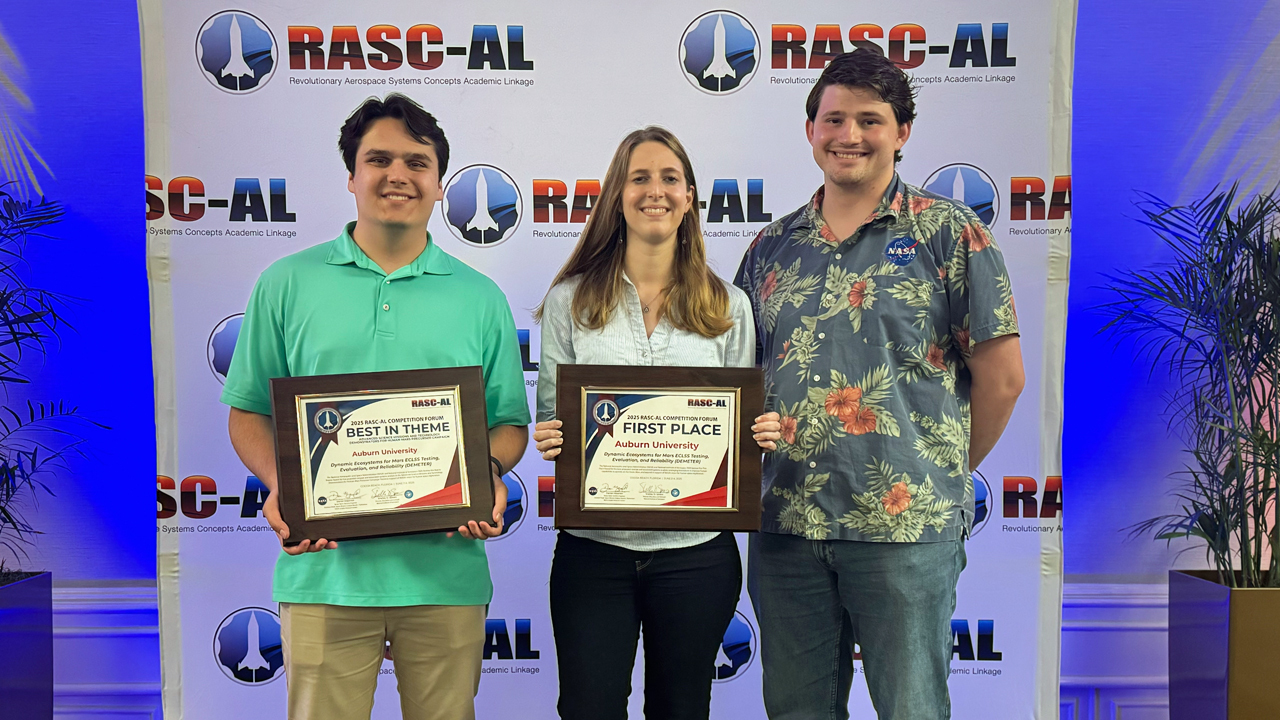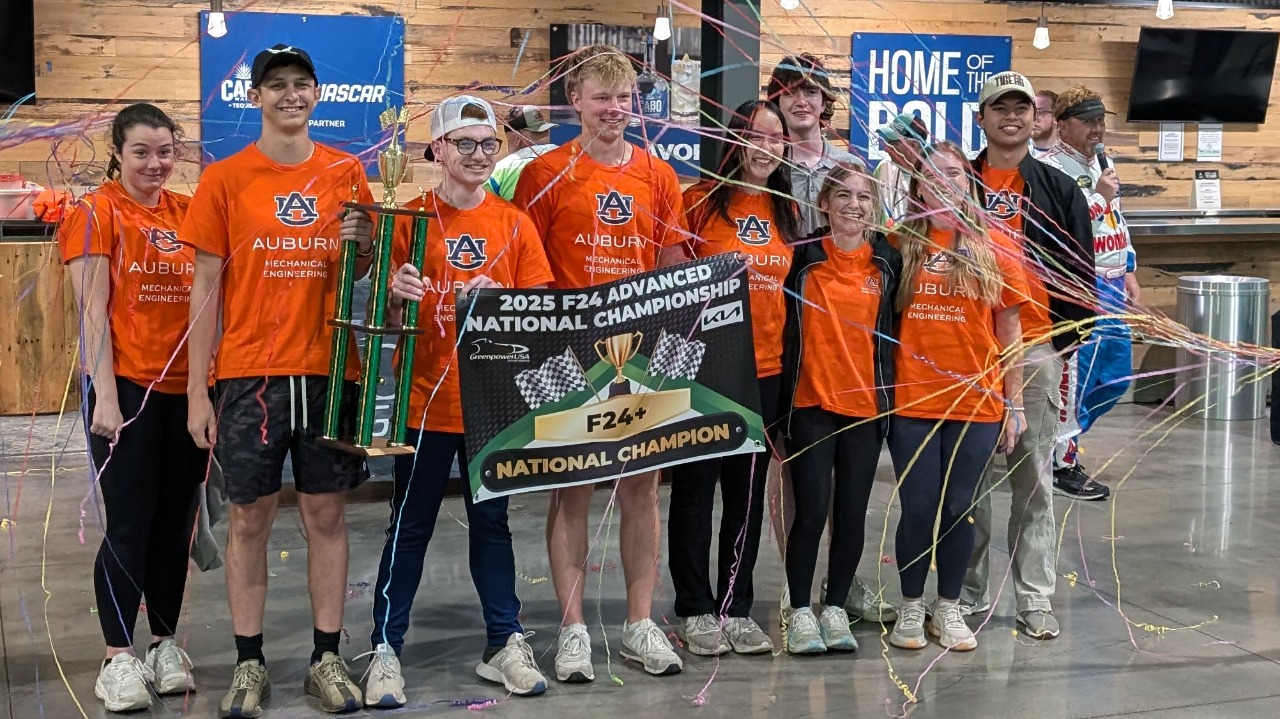With powerful platform, mechanical engineering graduate leads K-12 robotics into the future
Thahn (Tj) Nguyen earned a bachelor’s degree in mechanical engineering from Auburn University and is now working toward his master’s while he serves as assistant director of the Southeastern Center of Robotics Education, or SCORE. He is also a recent graduate of the College of Education with a powerful ambition: to increase the ability of Alabama schoolchildren in STEM (science, technology, engineering and mathematics) and dramatically improve their achievement scores.
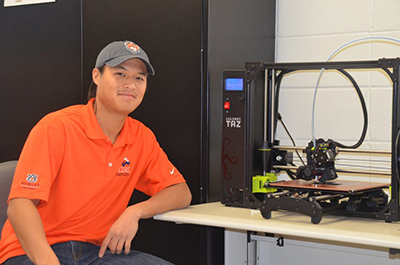 |
| Tj Nguyen is pictured with a 3-D printer in the SCORE lab. |
SCORE is a new and innovative Auburn University outreach initiative designed to more effectively develop and deliver robotics education to K-12 students and teachers. The SCORE program centralizes the robotics education activities already underway in Auburn’s College of Sciences and Mathematics, College of Engineering, and Auburn University Aviation Center It provides a mechanism for growth in the area of robotics education outreach. The SCORE initiative is the only center of its kind in the country.
“We work with classroom teachers on their professional development as they learn how to use robotics and engineering in more traditional science and math classrooms,” Nguyen said. “We also host student robotics competitions to provide some context for the students to practice engineering design.”
Nguyen became interested in Auburn through its BEST Robotics competition when he participated as a student at Hoover High School. As an undergraduate at Auburn, he worked for Mary Lou Ewald, director of outreach for the Auburn University College of Sciences and Mathematics. Ewald gradually increased his job duties to the point that when he graduated, she hired him on as the center’s assistant director.
“I also began working with Dr. Christine Schnittka in the College of Education when I started graduate school in 2013,” Nguyen said. “Dr. Schnittka is a really dynamic teacher and does a lot to inspire school-age children. We worked together on a math/science partnership grant whose purpose was to integrate robotics and engineering concepts with state science and math standards so that teachers could use the lessons in their traditional math and science classes without the need for a separate STEM elective or club. Next, I took Dr. Schnittka’s ‘Save the Animals’ curriculum and converted it to iBooks with lots of graphics, interactive modules, and video examples. We used a ‘train the trainer’ model with Alabama Math, Science, and Technology Initiative specialists, so we’re getting this out to a lot of classrooms across the state.”
Nguyen and Schnittka continued their collaboration and developed a paper on using competitions in robotics curricula to increase motivation and self-efficacy. Along the way, Schnittka inspired Nguyen to channel his energy and talent for robotics and the STEM disciplines for maximum impact by enrolling in the College of Education. He earned the alternative master’s in general secondary science.
“I had great teachers in high school, and then working here with Dr. Schnittka helped me see that I wanted to give back to future students so that was my motivation for getting the education degree,” he said. “”For my clinical residency, I was fortunate to be part of the Consortium for Overseas Teaching program, which allowed me to do my student teaching in Perth, Australia. There, I saw different standards and methods of teaching, as well as amazing cultural diversity. We had 64 distinct ethnicities in our school of 800 students, so that was huge for me. Kids are the same everywhere in most ways, but I appreciate that they have more free time and a little less structure there, which in my mind can lead to greater creativity. In Australia, I taught three STEM classes, including underwater robotics and 3-D Modeling.”
Back home at Auburn, Nguyen eagerly accepted his position in SCORE. He finds great delight to be creating the same types of programs that inspired him as a youth visiting Auburn. Because of his excellent work, Ewald nominated Nguyen to be Auburn’s Student Employee of the Year in 2013. He won that, and also became the first-ever Auburn student to be named National Student Employee of the Year.
“The demand for what we are doing here — robotics outreach — is huge,” he said. “If I were a regular classroom teacher, I could perhaps influence 150 students in a year. But here at SCORE, I can influence 150 teachers in a year, who in turn can each inspire another 150 students.”
Like many scientists and engineers, Nguyen assumed that since he knew the content, he could teach it. He learned differently through his classes in the College of Education, and now feels ready to lead as someone who understands STEM, the place of robotics in these disciplines, as well as the pedagogical methods for effectively conveying those principles.
“I have a dream,” he said. “Before I die, I want to move Alabama’s STEM placement from 48th or 49th in the country to at least No. 25. Auburn has given me all the tools I need to do this, and my teachers, including Dr. Schnittka, have inspired me to do my best. I feel so fortunate to be in a position where I can impact generations of Alabama students to come. And that’s what I intend to do.”
— Story courtesy of the College of Education
Media Contact: , chris.anthony@auburn.edu, 334.844.3447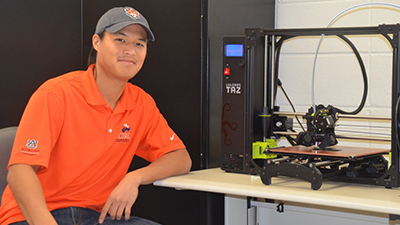
Nguyen Wide Photo



